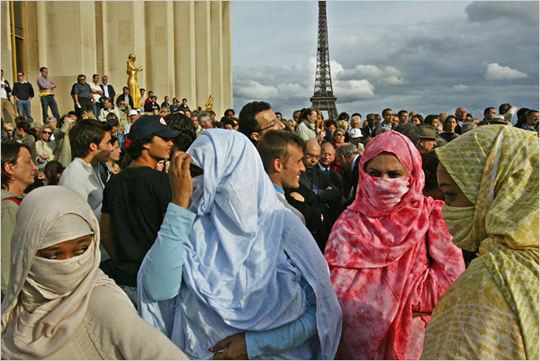I am going to start a series called 'Reasons to learn', where I will try to think of interesting reasons to learn a language, and to hopefully motivate you to learn that language. It will run probably every two or three weeks.

A lot more people to talk to.
Some 300+ million people speak French throughout the world. If you do any traveling then chances are you will run into someone who speaks French. They aren't just in France either. Many people speak French throughout Africa and Canada (in fact, two of the largest French speaking cities are Montreal and Kinshasa in the DRC). French is also the third most used language on the internet.
It's easy.
If you speak english already then you will find French considerably easier than other languages. Some of the words are the same, and the grammar works in a familiar way. There are plenty of resources out there, both online and in bookstores, so learning French is an easily guided process. In fact, Tutorhunt.com lists 4,124 French tutors in the UK, all eager to help you learn French.
Door into Romantic Languages.

I've talked a lot about romantic languages before I think. All of the languages in the Romantic family are quite similar. So learning French will make picking up Spanish, Italian, Portuguese etc easier if you choose to do so. In fact, a few days ago I was told by a non-native French speaker that I should learn Italian, because French people would understand me and it is easier than French.
Parisians will talk to you.
I don't want to show any English bias, but there is a tendency for people in Paris to dislike speaking English. I can only back this up with personal experience and other peoples testimony, but it sure seems that way. So learning French could break down those linguistical barriers.
Explore a culture.

By not speaking French you are missing out on decades of literature, films, television shows, magazines, newspapers etc. You might discover your favorite artist, or novelist, or director, by picking up french and doing a little cultural exploration. Imagine the conversations you could have about the work of Andre Breton while sitting in a Parisian Absinthe bar, entirely in French! If that's not a cool image then I don't know what is.






